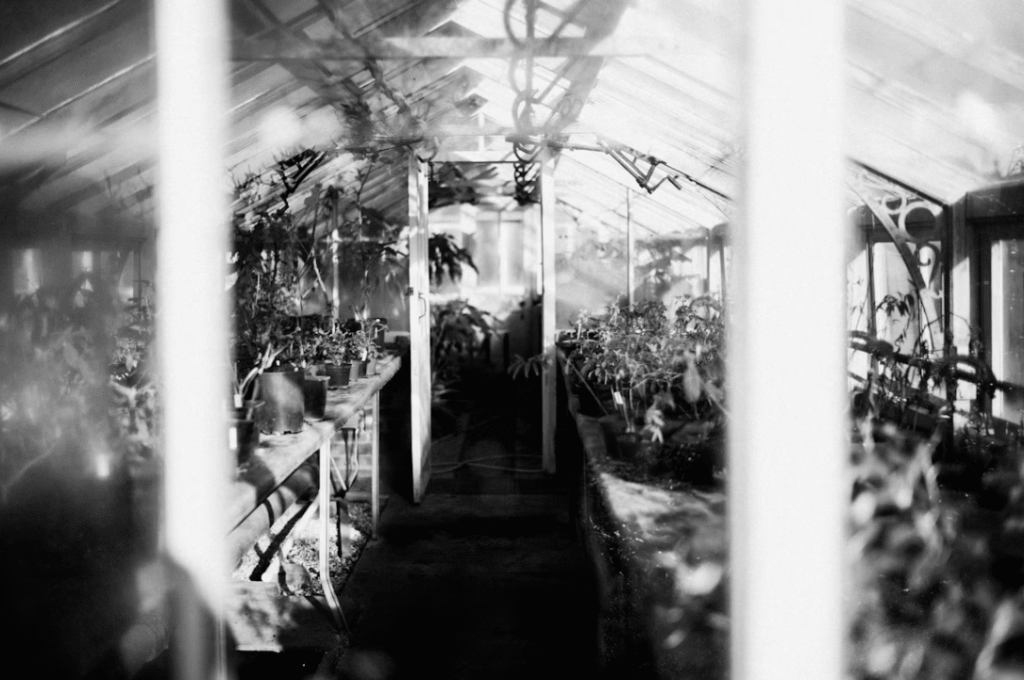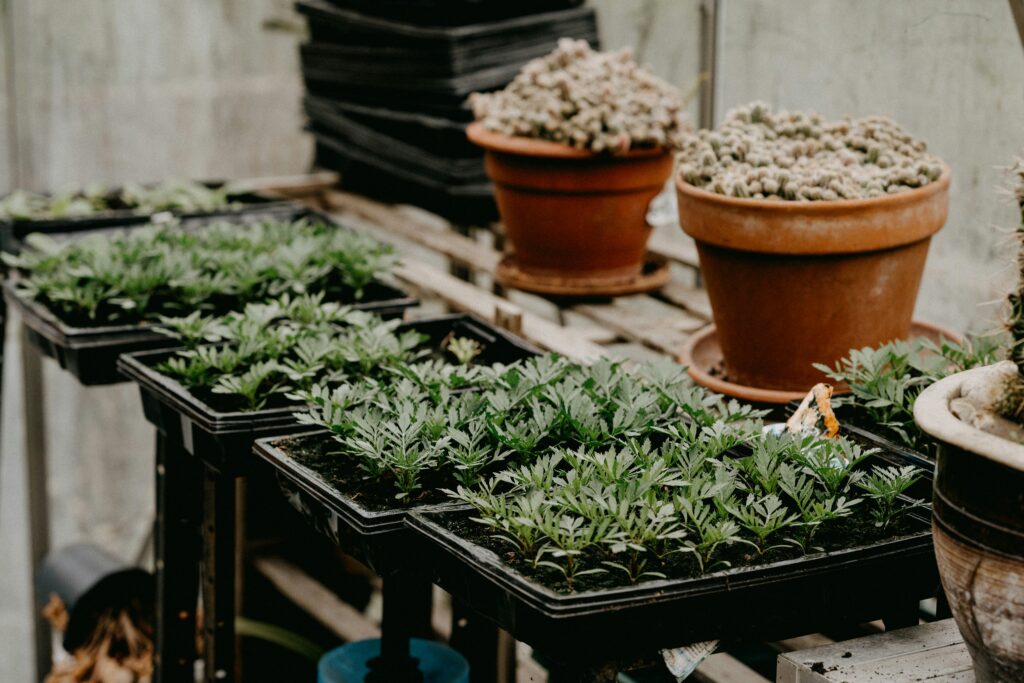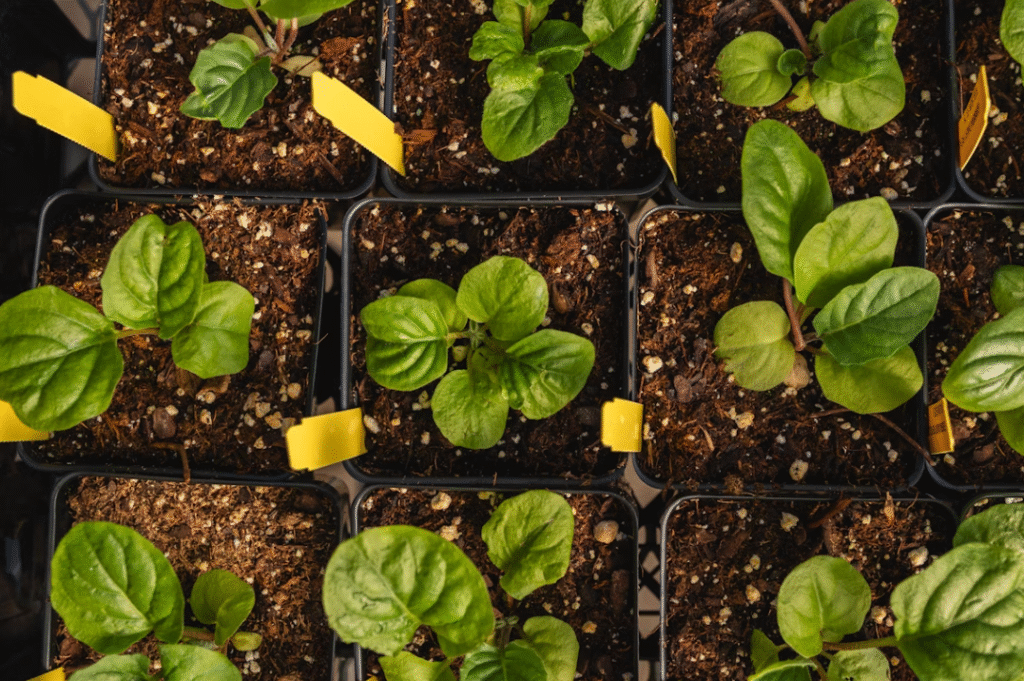Meet Daniel and Jeffrey: Instructors in PA Prisons Who Are Planting Seeds and Offering a Little Bit of Peace
This story is part of a series of “meet & greets” with individuals who use our Adopt a Cow program to inspire you with the endless ways you can incorporate the program in the classroom and beyond!
While Discover Dairy’s Adopt a Cow Program is usually utilized in an elementary classroom setting, two instructors from Pennsylvania prisons have discovered meaningful ways to introduce the program and make agriculture connections with their inmates.
Daniel Nicklen, an ABE Teacher in the Department of Corrections in Albion, PA, has inmates of all ages – mainly 22 and up – who take general education classes with him.
“I teach in a classroom inside the prison. Each prison in Pennsylvania is set up like a small town, and that includes an education building with general education classes, vocational classes, a library, guidance counselor and principal,” Daniel shared. “I’m able to teach any of the core subject areas such as ELA, Math, Science, Social Studies, Health and Financial Literacy. In this prison, we have a large mental health population so I work a lot with those inmates given my background with special education.”
For Jeffrey O’Hara, a Horticulture Vocational Trade Instructor at the United States Penitentiary Canaan, he works with adult male, primarily white-collar offenders. Most are older than 25 and come from all walks of life. After hearing about the Adopt a Cow program, he thought it would help bring a sense of meaning and excitement to his horticulture class – while raising awareness about entry-level job opportunities in agriculture once inmates are released.
“They can sign up for my horticulture class. It’s a 200-hour class and it’s just basically an introductory program to horticulture. The Adopt a Cow program has very diverse subject content,” Jeffrey explained. “We tie in a little bit of the program with the growing of plants. We talk about how farmers grow corn to feed cows, different types of grain, and of course pasture grass and stuff like that.”

Introducing them to a new industry
With many of the prison’s inmates coming from inner cities, learning about cows is new to them.
“Some of my students lived in cities. They may never have seen or touched a cow or knew that’s where milk comes from. They don’t know any of the technical aspects that go into farming like the housing, bedding, and how fast the animals grow,” Jeffrey said.
With each classroom being paired with a calf from a Pennsylvania dairy farm, Daniel and Jeffrey receive regular photo updates, dairy facts, activity sheets, and other resources that help explain the calf’s growth, how the farmers care for her, and more.
“I have a bulletin board that I have dedicated to the program in the classroom. I mainly incorporated the program into my biology class, but students from other classes have been interested,” Daniel shared. “Usually when we get the monthly updates, I’ll share all the photos with the students on my projector which will usually lead to questions that we discover together as a group if I’m unable to answer it myself. I’m thankful there is a program out there to teach about agriculture in PA.”
For Jeffrey, the program is helping him introduce new concepts to his students about the science and technology that goes into farming.
“The biggest thing I use from the program is the dairy fun facts. I usually do that with every class and they’re very surprised that a cow can drink a bathtub full of water a day, for example, or how much the calf has grown. I believe the inmates do get information out of it,” Jeffrey added. “I also have the growth sheet provided by the program in case they want to compare how tall the cow is compared to how tall they are. I tell them how farmers need to have mechanical knowledge and computer knowledge, too. It’s just not planting seeds in the dirt anymore.”

Helping them connect with their families
Both Daniel and Jeffrey say the Adopt a Cow program has also allowed inmates to connect with their families and children outside the facilities.
“I know that many of the students have family/children outside the facility that they share what they’re learning. They’ve shared the website so they can also view the program,” Daniel said.
“Adopt a Cow is giving them a background that they can maybe tell their kids or grandkids about – share some fun facts about a cow or share what we talked about in class,” Jeffrey added.
Offering a little bit of peace
Beyond fun facts and knowledge about agriculture, the Adopt a Cow program has helped give the students something to look forward to and a bit of “mental first aid” – two monumental things for inmates.
“The Adopt a Cow program has engaged them to ask questions and have something to look forward to [in my class]. Many of the students are forced to come to school due to the lack of a GED/high school diploma if they didn’t enter into the system with one,” Daniel said.
“This class gives them a little bit of peace away from life in the prison. There’s a lot of politics since they live in a dorm setting. It’s like a little city in itself, so when they come over to the greenhouse for class, it gets them away from the politics. It’s kind of like mental first aid and plant therapy,” Jeffrey shared.

Opening their eyes to job opportunities
With many dairy farms experiencing labor challenges, the Adopt a Cow Program is helping the inmates learn about potential, entry-level job opportunities once they are released.
“The program has raised awareness of job opportunities after release, since these guys don’t have a lot of options. I’m not sure how many students are aware of jobs in agriculture, so this has been a great introduction for that. I would like to expand on this topic for next year and see if there is any way to have more agricultural industries involved in our re-entry fair,” Daniel shared.
“The connection for job skills when they get out is definitely important. When they are released from prison, they need to have a job skill so they can get employed and don’t fall back into a life of crime again,” Jeffrey said. “They only know the lifestyle they had before they came in. Hopefully taking this horticulture program changes their life and gives them a skill to help them find a life-sustaining wage.”
What is the most rewarding part about working in a prison setting and helping to make these connections with inmates?
“In our case, when an inmate plants let’s say a marigold seed, it’s small and they put it in the dirt. Then, 10 days later, it comes up and the inmates realize, ‘Wow, I did that.’ Then, he takes that and they’re transplanted into a cell pack. Then, he takes that cell pack and transplants it into the landscape bed. It gives them a sense of meaning,” Jeffrey shared. “That, of course, brings joy to me that I was able to make that connection and show them how to do this from start to finish.”
Discover Dairy is an educational series managed by the Center for Dairy Excellence Foundation of Pennsylvania in partnership with American Dairy Association Northeast, American Dairy Association Indiana, Midwest Dairy, The Dairy Alliance, Dairy Farmers of Wisconsin, Dairy Management West, Dairy West, New England Dairy, Dairy Farmers of Washington, American Dairy Association Mideast, Dairy Council of Florida, United Dairy Industry of Michigan, Maine Dairy and Nutrition Council, and Oregon Dairy Council.